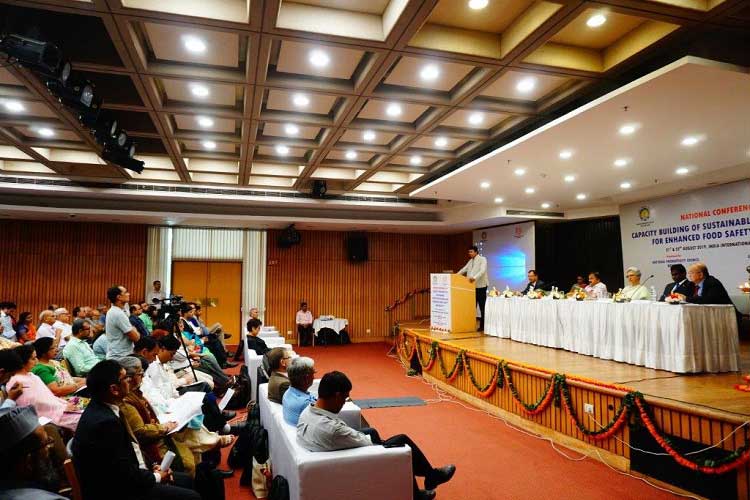
Select Page
 Sound food value chains are crucial in food security, ensuring safety and quality, and reducing postharvest losses. India and PR China are responsible for annual losses of nearly 1.3 billion metric tons of food, with the highest waste of cereals, pulses, fruit, and vegetables occurring in India at both pre- and postharvest stages. Adequate infrastructure, market-focused government interventions, and investment in the processing and transport sectors are needed to reduce waste while improving food quality and thus consumer health. Revamped, modern food supply chains with supporting cold chains, processing and packaging facilities, and storage access at production and consumption centers are also required. Public–private partnerships (PPPs) have become key actors in food value chains in many countries since they can coordinate the activities of the government, food-related agencies, academia, the private sector, farmers, the food industry, and NGOs.
Sound food value chains are crucial in food security, ensuring safety and quality, and reducing postharvest losses. India and PR China are responsible for annual losses of nearly 1.3 billion metric tons of food, with the highest waste of cereals, pulses, fruit, and vegetables occurring in India at both pre- and postharvest stages. Adequate infrastructure, market-focused government interventions, and investment in the processing and transport sectors are needed to reduce waste while improving food quality and thus consumer health. Revamped, modern food supply chains with supporting cold chains, processing and packaging facilities, and storage access at production and consumption centers are also required. Public–private partnerships (PPPs) have become key actors in food value chains in many countries since they can coordinate the activities of the government, food-related agencies, academia, the private sector, farmers, the food industry, and NGOs.
Within its vast landscape encompassing distinct climatic ecosystems, India is home to diverse consumers who follow their own sociocultural dietary practices. This makes the establishment of sustainable food value chains even more critical. Under a special cash grant from the Ministry of Agriculture, Forestry and Fisheries of Japan, the Asian Productivity Organization (APO) and National Productivity Council (NPC) organized a National Conference on Capacity Building of Sustainable Food Value Chains for Enhanced Food Safety and Quality in New Delhi, 21–22 August 2019. NPC Director General Arun Kumar Jha welcomed the delegates to kick off the two-day event.
The APO-assigned international resource persons who gave presentations and guided the conference proceedings were Dr. Rodney Wee, CEO of Asia Cold Chain Centre, Singapore, and President Darunee Edwards of the Food Science and Technology Association of Thailand. They were joined by 20 Indian experts from academia, the private sector, and government agencies involved in efforts to increase food safety, improve supply chains, and upgrade related infrastructure. The 150 participants were heads of food-processing units, supply chain and vendor group managers, officers of agrifood producers’ associations, agribusiness industry leaders, NGO staff, and government policy planners and researchers.
More than 20 presentations and seven Q&A sessions covered the procurement of raw materials, processing, and distribution; applications of Good Agricultural Practices, Good Manufacturing Practices, Good Handling Practices, and Good Distribution Practices for maintaining food quality and developing supply chain linkages; government initiatives to set up 42 mega food parks and 299 cold chain projects nationwide; and combined government agency and PPP efforts to create necessary infrastructure. Conference participants then suggested recommendations to improve food value chains in the Indian context, including: